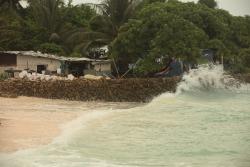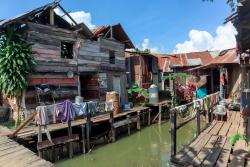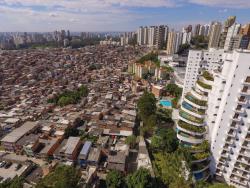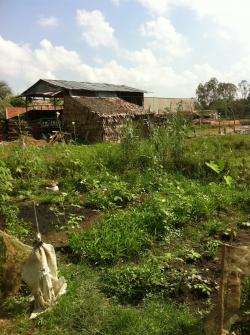Improving urban water and sanitation systems and building capacity in low- and medium-income contexts.
Many people living in low- and medium-income countries lack adequate water and sanitation services, and were these services are provided, climate-induced impacts threaten to disrupt them. To confront these issues and build resilience to climate change, there is a growing appetite to learn from the experiences of other locations and develop new ways to plan and manage urban water systems.
ISF has provided advice based on sound research and experience of improving water and sanitation service delivery under current challenging conditions, as well under projected climate impacts. This has included topics such as water conservation, drought response strategies, climate change adaptation, and improving the understanding of pathogen risks where pit latrines are prevalent.
Also explore International Development WASH (Water, Sanitation and Hygiene) to learn more about ISF's work in this space.
PROJECT | 2022-2025
Pacific health and sanitation solutions
This project aims to support improved access to safe, climate-resilient water and sanitation services in vulnerable and remote Pacific Island communities in Kiribati and Solomon Islands.
PROJECT | 2021-2023
Climate resilient urban sanitation
Equipping the urban sanitation sector with tools and knowledge for building climate resilience
PROJECT | 2019 - 2022
Water demand management support services to the Water Authority of Fiji
ISF has worked with the Water Authority of Fiji on a number of water management projects. This project aimed to bring Fiji's water demand down to 180 l/p/day through residential water leak reduction and water conservation education and awareness.
We provided field staff with facilitated training on how to undertake household water audits, and instal loggers on flowmeters. We also conducted on-the-job training, teaching staff how to input data into ISF-designed bespoke templates, and how to analyse this data to support meaningful decisions.
To date, ISF has supported the delivery of the Water Authority of Fiji's Water Conservation Strategy, Permanent Water Conservation Policy and their Water Conservation Implementation Plan to reach their target of 180l/p/d by 2033.
ISF also conducted a Wasted Water Study using household audit information and flowmeter data to estimate how much water was being lost due to leaks, and show how much could be saved through more efficient fixtures. The breakdown of the various end-uses for residential customers in Suva was estimated and a business case was prepared to demonstrate the high return on investment to the Water Authority of Fiji if they invested in showerhead exchange and leak-reduction programs.
Client: Water Authority of Fiji





